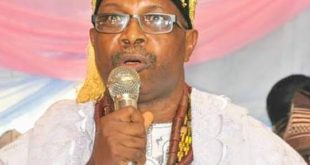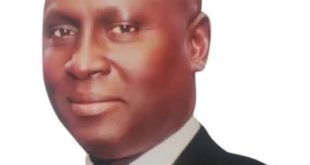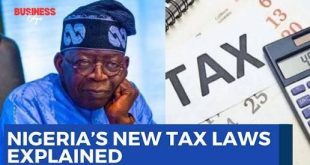Presidency in Nigeria has given it back to former president Olusegun Obasanjo for his uncharitable criticism of Tinubu’s government.
Among other things Presidency said gormer President Obasanjo was not an ideal leader to emulate,’ .. he has no moral grounds to criticise…and that his self-acclaimed reputation as an economic reformer did not align with his record in office.
Presidency says it’s not new, it’s the former leader’s habit of casting aspersions on every subsequent administration
Chief Obasanjo used the platform provided by Chinua Achebe Leadership Forum at Yale University to unfurl his latest treatise on leadership and public morality. He also used the forum to write off Nigeria as a failing country.’’
Listing his failure while leading Nigeria, Tinubu’s Special Adviser on Information and Strategy, Bayo Onanuga, said;
(1) .The former President had no moral grounds to criticise INEC, having presided over what he called “the most fraudulent election held in Nigeria since 1960.”
(2). Presidency alleges that Obasanjo wasted billions of naira on a failed third-term project in 2007.
(3). Presidency says nothing compared to Corruption under Obasanjo, citing Achebe’s rejection of the third highest national honour bestowed on renowned Achebe by the Obasanjo-led administration in 2004 on the grounds of the prevalence of abuse of power, corruption, poor leadership, and, in particular, “state-sponsored brigandage endorsed by Chief Obasanjo in Achebe’s home state of Anambra.”
“In rejecting the 2004 national honour by the Obasanjo administration, Achebe declared: ‘Nigeria’s condition today under your watch is…too dangerous for silence. I must register my disappointment and protest by declining to accept the high honour awarded me in the 2004 honours list,’” the statement read.
(4). The Presidency also cited the unconstitutional impeachment of four Peoples Democratic Party governors – Joshua Dariye of Plateau, Rasheed Ladoja of Oyo, Ayodele Fayose of Ekiti and Diepreye Alamieyeseigha of Bayelsa.
(5). Many of the
challenges Obasanjo highlighted in his Yale address remain unresolved legacies of his administration.
(6).The Presidency argued that overshadowed the expectations from an elder statesman to join a constructive dialogue on attaining national progress.
(7). It also acknowledged that Obasanjo’s tenure benefited from rising crude oil prices, which peaked during that period…,yet Obasanjo failed to prioritise gas development, a sector now receiving attention under the Tinubu administration.
(8).Poor economic decisions, including the hasty repayment of $15bn in Paris Club debt while neglecting critical infrastructure, laid the foundation for subsequent economic
(9). Presidency also faulted Obasanjo for failing to address Nigeria’s infrastructural decay, including federal roads such as the Lagos-Ibadan Expressway and the Lagos-Abeokuta Road.
(10). Presidency also accused him of undermining public universities by capitalising on their deficiencies to establish private institutions.
(11). On security, Presidency in Nigeria also linked the rise of militancy and kidnapping to Obasanjo’s administration, asserting that his tenure allowed such security issues to take root and expand..
While Buhari administration has modernising the Armed Forces through substantial investments in equipment and strategy, a trend it claims President Tinubu has sustained.
(12). Presidency also exposes Obasanjo on matters of integrity, honesty, and morality in public leadership, it said Obasanjo is “certainly not a paragon of virtue for anyone to model after.”
The messy public spat between Chief Obasanjo and his then-vice president, Atiku Abubakar, over PTDF money that led to a Senate Public Hearing in 2004.
“The sordid details of the public hearing included unsettling evidence of how Obasanjo instructed his Vice President to buy Sport Utility Vehicles for his mistresses with PTDF funds.
“There was also the Halliburton bribe scandal, which the US Congress probe revealed. Bribe payments were made to the highest political authorities at the Villa while Obasanjo was in charge,”
Obasanjo administration invested $16bn in electricity, which left the country in utter darkness.
Obasanjo also sank money into Turn Around Maintenance of our refineries, which never worked, leading to the massive importation of refined petroleum products
The Presidency added, “The colossal amount spent on power was so embarrassing that President Umaru Yar’Adua, Obasanjo’s successor, ordered a probe.
Similarly, Obasanjo’s privatisation was scandalous;
“His administration cheaply sold national assets to cronies who stripped the assets of the state-owned enterprises. A case in point was the aluminium smelter company ALSCON in Ikot-Abasi, Akwa-Ibom State, built by the military government at the princely sum of $ 3.2bn. It was sold for 130 million dollars.
 YouNewsng Discover. Succeed. Enjoy
YouNewsng Discover. Succeed. Enjoy







